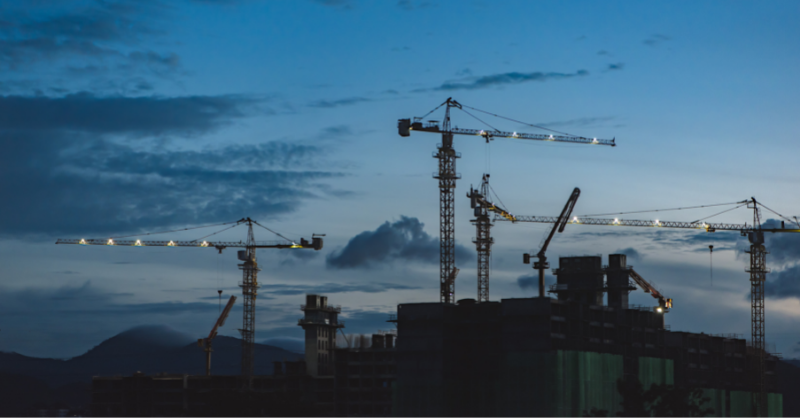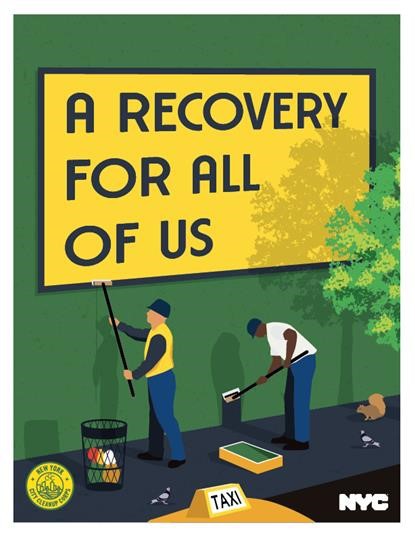

How US cities are prioritizing equity when deploying ARP funds
Article highlights
As cities release strategies for deploying #AmericanRescuePlan funds, @CPI_foundation's @CarinaGormley & Kelly Hui identify trends for how state leaders are promoting equity
Share article#COVID19 exposed deep, systemic & longstanding inequities in the US. The #AmericanRescuePlan was designed to place equity & racial justice at the heart of recovery efforts.
Share articleAcross the US, local leaders are committing to leverage the power & potential of the #AmericanRescuePlan funds to build back better with equity at the center
Share articlePartnering for Learning
We put our vision for government into practice through learning partner projects that align with our values and help reimagine government so that it works for everyone.
To support recovery from the impacts of COVID-19, the White House announced a $1.9 trillion American Rescue Plan (ARP). ARP provides state and local governments with unprecedented sums of flexible funding for economic relief and investment in communities. While the scope and methods of how cities use this “once in a generation opportunity” vary broadly, equity is emerging as a high priority in many city and state plans.
Community leaders and policymakers are working together to prioritize equitable decision-making around ARP investments by asking “hard questions around racial equity” and seeking to address them.
As cities release strategies for deploying ARP funds, CPI has identified trends for how local and state leaders are promoting equity through public participation and infrastructure, affordable housing and homeownership, and workforce development.
ARP provides state and local governments with unprecedented sums of flexible funding for economic relief and investment in communities.
Public Participation and Infrastructure

Many cities and states have seized the opportunity to use ARP funding to improve public infrastructure and recreation facilities for historically underserved communities.
Considered a “life-changing opportunity for Akron and its residents,” the city is investing ARP funding into inclusive economic growth, vibrant public spaces, and recreation to diminish economic blight. Akron’s goal is to create lasting growth and positive change by investing deeply in seemingly forgotten neighborhoods and creating more opportunities for homeownership and meaningful recreation.
On the West Coast, San Diego is investing $40 million towards repairing streets and roads in historically underserved communities. In what Mayor Todd Gloria calls the “Sexy Streets” program, this significant investment will enable the city to fix roads in underserved areas and move towards its goal of building more equitably distributed complete streets across the city.
In Louisville, the city is working closely with residents to identify opportunities for the city to grow more inclusively. Louisville is centering equitable recovery and racial equity frameworks in its proposed investments, and launched an online form for residents to provide ideas on how the remaining ARP funding should be used.
Affordable Housing and Homeownership

For years, communities in every state have been waging a difficult battle against the affordable housing crisis, which has disproportionately affected people of color, LGBTQ+ persons, and immigrant communities. With America’s 2020 racial reckoning and the COVID-19 housing crisis top of mind, some cities are using ARP to reimagine affordable housing options.
The fast-growing city of Nashville is slated to triple its investments into affordable housing by constructing long-term partnership and financing strategies. The city will engage partners in service strategies and implement the local taskforce’s recommendation to start a $10M Housing Catalyst Fund. According to Nashville’s plan, tax abatement provisions will incentivize affordable housing construction projects and tax revenues from the new Oracle campus will fund affordable housing long-term. These efforts aim to buffer the effects of market inflation on the cost of housing and preserve the availability of affordable units in Nashville’s rapidly growing downtown.
According to Nashville’s plan, tax abatement provisions will incentivize affordable housing construction projects and tax revenues from the new Oracle campus will fund affordable housing long-term.
Baltimore is socializing a rent-to-own fund for Section-8 tenants to more readily achieve homeownership. Baltimore is also thinking of becoming its own low-cost public internet service provider, which could make the housing and employment opportunities most readily accessed online available to a greater number of Baltimore residents. By coupling improvements in housing and infrastructure, Baltimore is setting the city up to supercharge the penetration of each program’s benefits.
Workforce Development and Skill Building
 City of New York: https://www1.nyc.gov/office-of-the-mayor/news/246-21/recovery-all-us-new-york-city-launches-new-deal-inspired-city-cleanup-corps
City of New York: https://www1.nyc.gov/office-of-the-mayor/news/246-21/recovery-all-us-new-york-city-launches-new-deal-inspired-city-cleanup-corps
Despite prevalent unemployment and high poverty rates among certain American communities, the U.S. is experiencing a shortage of workers to fill available positions.
With 2.4 of a prospective 4.6 million manufacturing jobs at risk of going unfilled due to lack of workforce training, the state of Delaware is using its unique public-sector capacity to coordinate private and nonprofit certification training and skills building for the future of work. By better preparing the workforce for the in-demand needs of today’s markets, Delaware aims to bolster industries and increase individual opportunities to build wealth.
To quickly create more positions in their workforce and address the physical impacts of COVID-19 on the city, New York City is taking a place-based, New Deal-era approach with the City Cleanup Corps (CCC). This program aims to create jobs that provide 10,000 New York residents with employment opportunities while also doubling down on green infrastructure, community health, and safety investments across all of the city’s neighborhoods. In addition, the program aims to mitigate the impacts of systemic discrimination by focusing on the neighborhoods hardest hit by the COVID-19 pandemic.
Prioritizing Equity in Recovery
The COVID-19 pandemic irrevocably exposed the deep, systemic, and longstanding inequities in our country. As the country recovers from the impacts of COVID-19, there is a focus on “building back better” and ensuring “a recovery for all.” To this end, the American Rescue Plan was designed to place equity and racial justice at the heart of recovery efforts. Across the country, local leaders are rising to the challenge and committing to leverage the power and potential ARP funds to build back with equity at the center.
You may also be interested in...


Cities Today: Inclusive leadership: Five lessons in crisis response for digital government leaders
